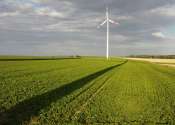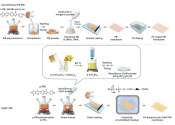'Not a lab experiment': climate tech CEO on green innovation
Microsoft co-founder and billionaire philanthropist Bill Gates has been hosting executives and entrepreneurs in London this week to boost investment in cutting-edge technologies promising big breakthroughs in tackling climate ...
Jun 27, 2024
0
8









